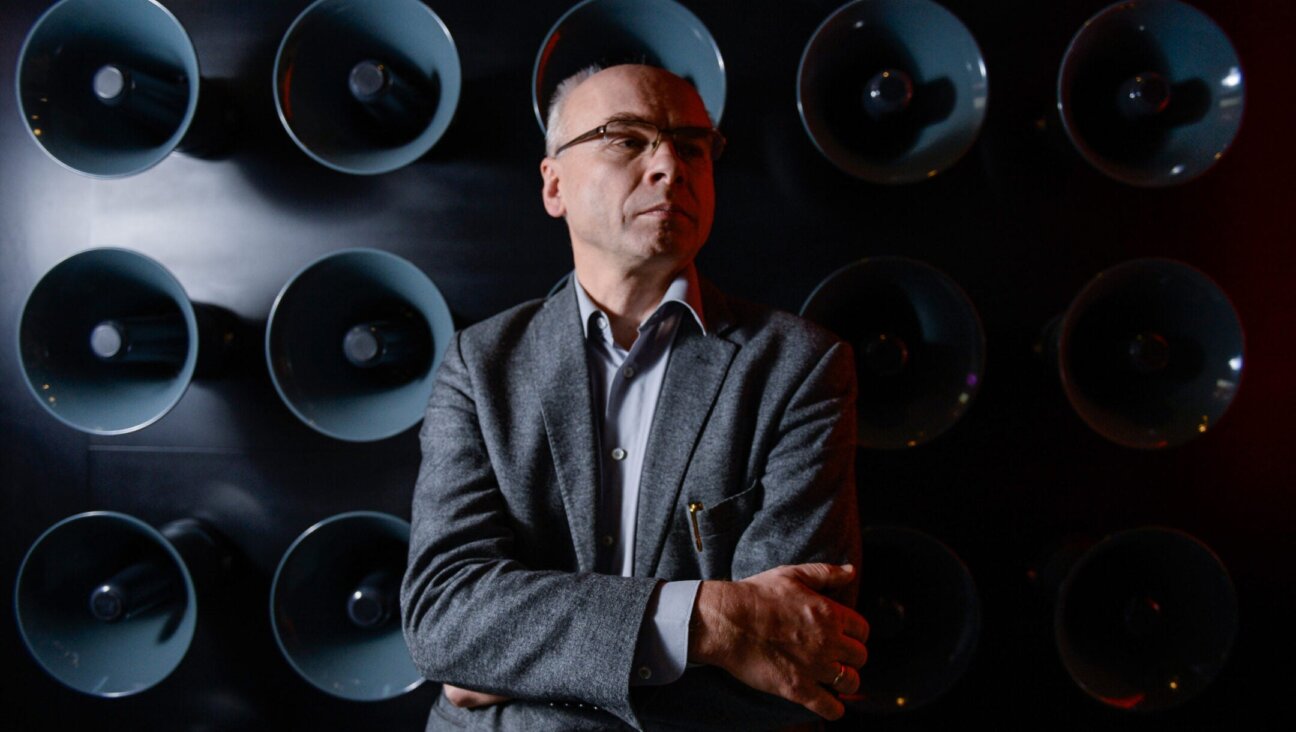Sweet Generation Gives Teens a Taste of the Baking Business

Graphic by Angelie Zaslavsky
By day, Amy Chasan oversaw youth-education programs for the City of New York. By night, she’d indulge herself by baking cupcakes for friends and family — “a wedding here; an art opening there,” she said.
After a round of budget cuts at her city job, Chasan had a brainstorm: What if she could marry her love for baking with her zeal for helping kids?
“The best youth training happens in real-life scenarios anyway,” she recalls thinking.
The result: Sweet Generation, a bustling East Village bakery that’s winning kudos for its youth-empowerment mission — and raves for its lavender-lemon cupcakes, gooey brownies and home-made Pop-Tarts. With help from head baker Rena Lampka and a small army of eager teen trainees, Chasan is built the business into a pastry powerhouse with a devoted neighborhood clientele and wholesale clients like Madison Square Garden and the Think Coffee chain. “The whole business started because I adore cooking for people I love,” Chasan said.
Growing up in Boston, Chasan learned baking — and Jewish values — at her mother’s knee. “The importance of good food, community and helping people was instilled in me from a very young age,” she told the Forward from a closet-size office behind Sweet Generation’s retail space. “My mom would often bake her famous banana bread for community fundraisers, bake sales or just to bring girlfriends together to talk and share. I learned that food has tremendous power that way.”

Amy Chasan piping frosting onto cupcakes. Image by Amelia Holowaty Krales
She also learned that time in the kitchen can stir up more than just batter. “The cooking process, and time spent working with someone in the kitchen in a safe place, opens conversations about life, aspirations, fears and experiences that can be used to build one’s confidence and develop a sense of direction and purpose.”
That kind of thinking fuels Sweet Generation’s internship program, which has served 35 kids since opening its doors almost exactly a year ago.
Baking has become a sizzling sector of social entrepreneurship. New York’s Hot Bread Kitchen teaches immigrants English and business skills while selling the baked goods they help create. Greyston Bakery in Westchester, New York, founded by businessman Bernie Glassman, trains “hard-to-employ individuals” with work skills while employing them to bake desserts for high-end New York restaurants. Greyston is now a $10 million business that produces over 20,000 pounds of brownies daily — and offers affordable housing and medical care for its employees.
At Sweet Generation, interns come from schools across New York City and have to apply for positions. Chasan said she’s aiming to work with a range of teenagers, from “high-school youth looking for a first job experience to disconnected older youth who are working on making a shift in their life.”
After an orientation that introduces interns to concepts like professional standards, customer service and social mission, the kids get a deep dive into Sweet Generation’s day-to-day: “How to use our Point-Of-Sale system, how to brew coffee, product tasting, kitchen safety, even personal goal-setting,” Chasan said.

The East Village bakery serves up a social conscience along with its cupcakes. Image by Todd Durm
Once Chasan and her crew decide if an intern will work front or back or house — serving customers or baking treats — they pair the kid with a mentor who teach the basics of reading and scaling recipes, packaging products and setting up display cases. Interns also take the NYC Department of Health’s Food Safety course and exam. “The potential to exit our program with a Food Handler’s License makes them more eligible candidates for food service jobs,” Chasan said.
The program’s success stories include a former intern who’s now an employee — and overseeing 4,000 pieces of baked goods daily at Sweet Generation’s busy commissary kitchen in Long Island City, Queens.

Intern Lisbeth Pichardo preparing batter. Image by Amelia Holowaty Krales
“Working at the bakery’s been life-changing,” said 22-year-old Lisbeth Pichardo after one of her overnight baking shifts. “I was constantly getting pulled out of my comfort zone. I’ve always been very quiet and shy, but I had to talk to customers when I started working front-of-house. At first, it was hard. But when I saw how much it was helping me get stronger as a person, I embraced it,” she says. “It made me so much more confident. It’s mind-blowing when I think about the transformation. I have grown so much with them.”
Pichardo now talks to other interns about her experience.
But working with inexperienced young people doesn’t always go smoothly. “You have to have a sense of humor about it,” Chasan said. “When they end up creating more work for us, we ultimately learn how to run the program better.” Having teens around has also pushed Chasan and her crew to improve recipes. “Our brownies just weren’t hitting it, and one of the kids finally told us they weren’t chewy enough,” she says. “We added melted chocolate and whole pieces. It was a game-changer.”
Chasan is also thinking big for Sweet Generation, which still shares its commissary kitchen and frequently taps out storage space for wholesale goods. “Six months ago, I never would have guessed we’d be where we are now,” she said. “My goal is to build out our own commissary kitchen that will operate 24 hours a day. That’ll help us grow the business. And it would create infinitely more opportunities for our kids.”
Michael Kaminer is a contributing editor at the Forward.
















